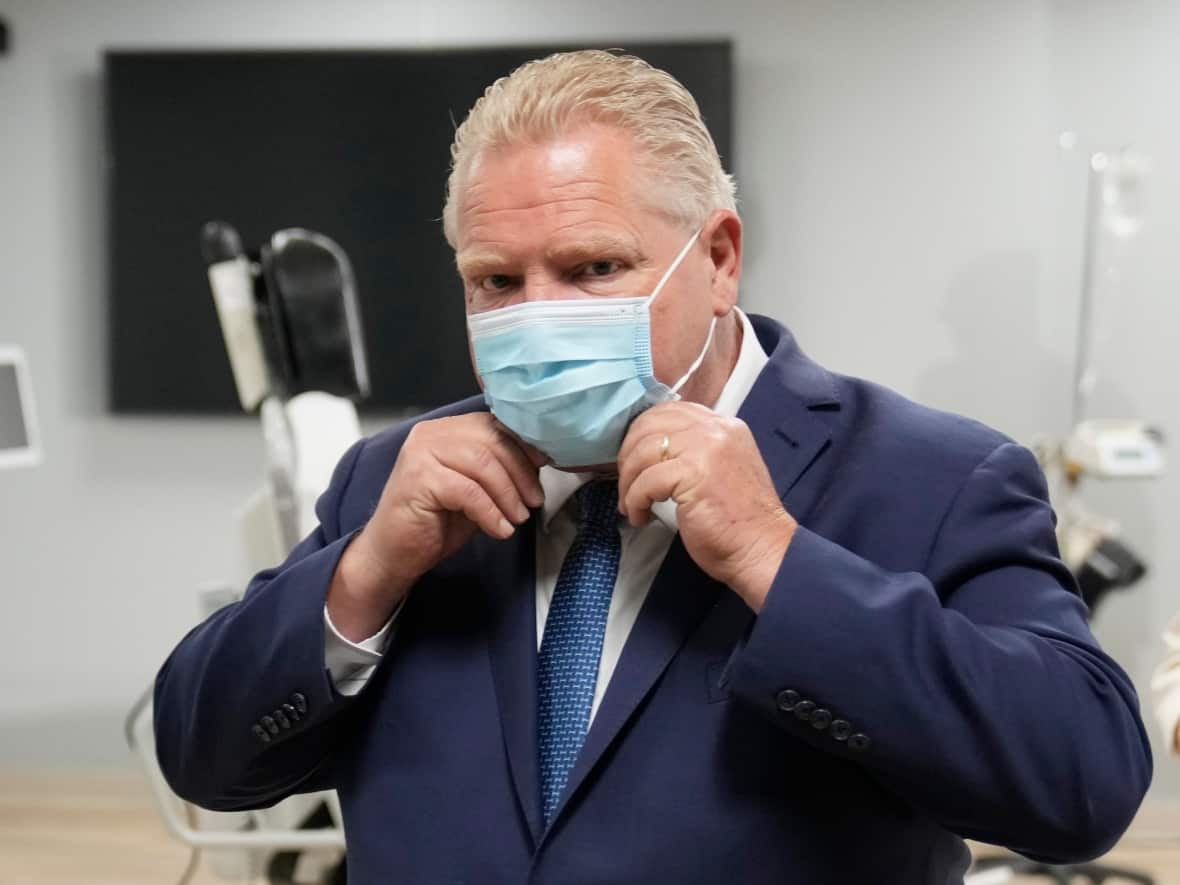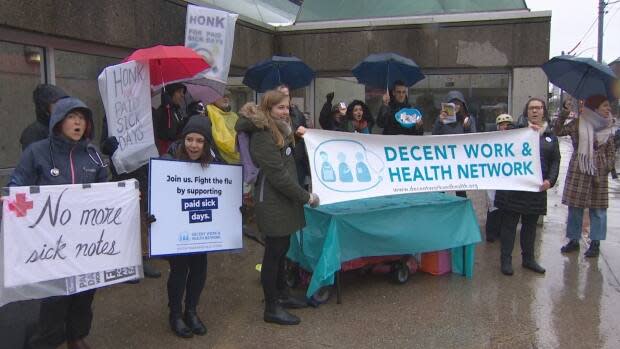Ontario to end paid sick days program, lift some COVID-19 measures in LTC homes

Ontario is set to end a program that gave workers access to three paid sick days and lift some COVID-19 measures in long-term care homes.
In an emailed statement to CBC Toronto on Wednesday, the Ministry of Labour, Immigration, Training and Skills Development confirmed reporting by The Canadian Press that the temporary paid sick days program will wrap up by the end of this month.
"As a time-limited pandemic measure, the Ontario government introduced paid COVID-19 leave, a program designed to support people who needed to take time off work to isolate or get vaccinated," the statement said.
"Ontario has now achieved one of the highest vaccination rates in the world, and consistent with the sunset date for this program, it will expire effective March 31, 2023."
The news comes a day before the province is set to table its budget for this year.
According to The Canadian Press, a spokesperson for Premier Doug Ford said the program will not be replaced with another, but that the Progressive Conservative government will continue moving forward with its plan to provide portable health and dental coverage to workers without paid sick days.
Government 'no friend to Ontario workers': NDP
That portable benefits program is intended to cover workers in the gig economy, retail and hospitality jobs who don't have benefits, and accommodate people who may change careers throughout their lives.
NDP Leader Marit Stiles said her party was pushing for 10 guaranteed paid sick days for all Ontarians plus an additional 14 government-funded paid sick days during a public health emergency.
"This government is no friend to Ontario workers," Stiles wrote in a statement. "Nobody in Ontario should have to go to work sick, or leave a sick child, because they can't afford not to."
The Decent Work and Health Network, a network of Ontario health providers who advocate for better employment conditions, have been pushing for permanent paid sick days before and during the pandemic.
"We are outraged that the government has not taken any concrete steps to provide life-saving, employer-paid sick days to workers in Ontario," said Dr. Bernard Ho, an emergency and family physician with the group, in an email.
"By ruling out the possibility of legislating at least 10 employer-paid sick days the Ford government has delivered another blow to Ontario's health-care system."

Ford's government first announced the temporary sick leave plan in the spring of 2021 after facing growing calls to bring in such a policy to minimize workplace spread of COVID-19.
Under the program, employers are reimbursed by the government for the paid leave days. Eligible workers can receive up to $200 per day for up to three days for pandemic-related absences like testing, vaccination, isolation or caring for relatives who are ill with COVID-19.
Ontario's labour minister said this week that the program has served more than 500,000 workers.
Some COVID-19 restrictions in LTC homes ending
In a separate announcement, the province announced it will also start lifting some COVID-19 restrictions in long-term care homes at the end of the month.
Starting March 31, homes will no longer need to:
Test staff, caregivers and visitors who don't show symptoms of COVID-19.
Recommend staff, caregivers and visitors wear a mask outdoors, unless staff are close to a resident.
Perform daily temperature checks or screening of residents returning to a home.
Keep the limit of one caregiver at a time during a COVID-19 outbreak, or when a resident is symptomatic or isolating.
Adjust physical and social activities to include physical distancing.
The Ministry of Long-Term Care also says homes that have retained COVID-19 proof of vaccination requirements are "encouraged" to revisit their policies and consider allowing visitors and qualified staff, regardless of their vaccination status.
The move, the ministry says, will align Ontario with provinces like Quebec, New Brunswick, Alberta, and Saskatchewan that have committed to lifting similar measures.
The ministry says the move was made in consultation with Ontario's Chief Medical Officer of Health, Dr. Kieran Moore, and that lifting these measures is part of its first phased approach to updating COVID-19 measures in long-term care homes.
"Over the past three years, the COVID-19 pandemic has required sacrifices from individuals, families, businesses, the health -care system and especially the long-term care sector," said Moore in a news release.
"Thanks to their continued efforts, Ontario has reached a point where it can begin a safe, cautious and balanced reduction of public health measures in long-term care homes across the province."
The province says it will work closely with Moore to "monitor the pandemic to keep homes safe for residents and staff."
Provincial data shows 5,335 nursing home residents have died from COVID-19 since the pandemic hit Ontario in early 2020. Thirteen long-term care home health-care workers have also died over that time frame.


